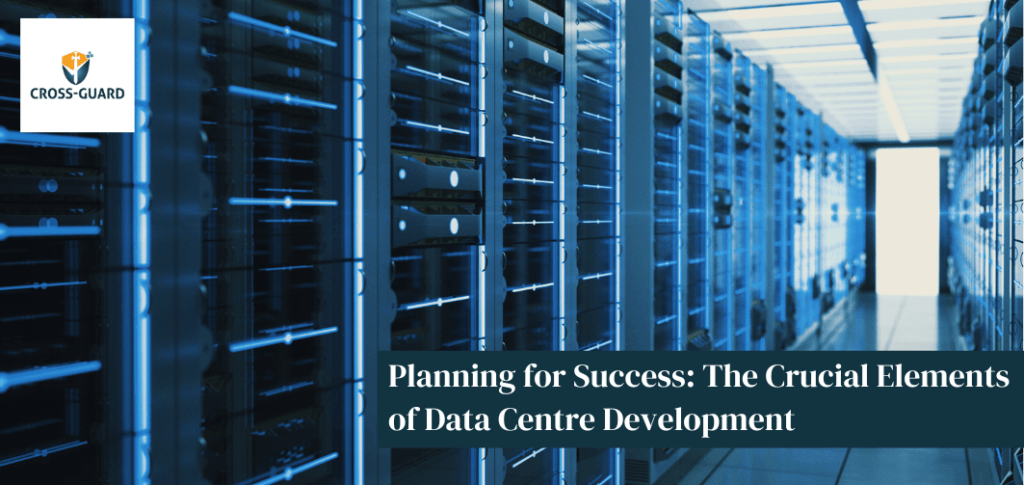Planning for Success: The Crucial Elements of Data Centre Development

When embarking on data centre development, it is vital to consider various factors to ensure its success. These considerations are influenced by the market, timeframe, and available resources. Several crucial elements need to be evaluated at the project’s outset, as they also play a significant role in determining the ideal location for the data centre.
As data centres continue to grow in size, they consume a significant amount of electricity, with the average hyperscale facility consuming between 20-50 megawatt-hours annually. When considering the development of a new data centre facility, it’s crucial to prioritise reliable power and connections. This is necessary to ensure that network latency is minimised between each data centre and the areas they serve, especially as the data centre expands and connects. This is necessary to ensure that network latency is minimised between each data centre and the areas they serve, especially as the data centre expands.
Understanding the power infrastructure of the data centre and ensuring a reliable power supply is crucial for maintaining uninterrupted operations. Efforts for modernising the grid, such as The Great Grid Upgrade anticipated to be carried out in 2024, are essential to meet increasing demand. Moreover, it’s important to determine the appropriate on-site electrical generation equipment, such as generators, solar panels, and wind turbines, to integrate renewable energy sources and potentially replace power from the grid. This conversation is significant as the movement towards sustainable power generation gains momentum.
In today’s evolving regulatory landscape, sustainability remains a top priority for both existing and new data centres. As we continue to develop facilities, it’s crucial to consider the impact on energy efficiency, especially in light of the recently revised Energy Efficiency Directive in Europe. This directive has raised the EU’s ambitions for energy efficiency, signalling increased scrutiny on the data centre industry and its expansion. In Germany, efforts are underway to incorporate this directive into national law, with a focus on prioritising the reduction of power usage across the country. These developments underscore the ongoing importance of sustainable initiatives within the data centre industry.
When embarking on a project, it’s crucial to have a comprehensive grasp of the mandatory sustainable regulations. The geographical positioning of the project site plays a significant role in determining the extent to which renewable energy can be harnessed. Nonetheless, most sustainable practices are usually taken into account and put into action after the construction phase has commenced.
The data centre industry relies on skilled individuals at its core, making successful data centre development projects dependent on people. To keep up with emerging trends and technologies, the sector needs to establish specialised training programmes that promote continuous learning and adaptation. This applies to both newcomers to the industry and experienced professionals who have been part of it for many years.
According to Gartner, by 2027, 60% of data centre infrastructure teams will require enhanced automation and cloud skills, a significant increase from the 30% recorded in 2022. To prepare the workforce for future challenges and ensure continued industry growth, it is imperative to implement apprenticeships and similar training initiatives. These efforts will play a crucial role in equipping the workforce with the necessary abilities to meet the industry’s evolving demands.
We’ve highlighted the numerous critical factors that should be taken into account when commencing a data centre development project. It’s important to note that this list is likely to increase in complexity as the industry continues to evolve.
SHARE
DOWNLOAD A COPY OF OUR BROCHURE

GET A QUOTE
Get a Quote Form
"*" indicates required fields
